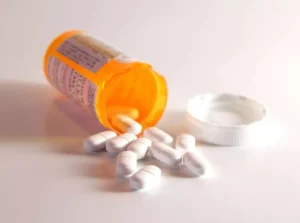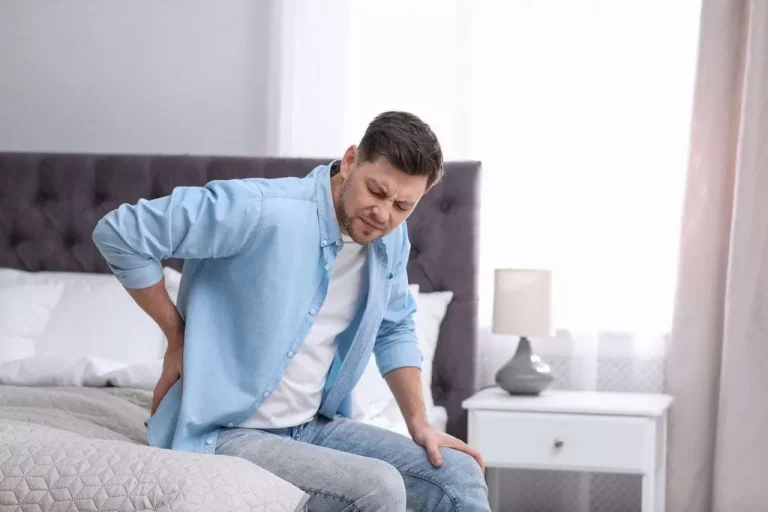Ibupropen Abuse, Signs, Symptoms, Effects,Treatment

Saying that “Advil is not habit forming” ignores much of what addiction medicine experts now know about substance abuse, compulsive behaviors, and mental health issues. With prompt medical treatment, you’re likely to recover from an ibuprofen overdose. People with a prior history of ulcers or gastrointestinal bleeding should not take NSAIDS like ibuprofen. The recommended dose of prescription ibuprofen for adults is typically 400 to 800 mg every 6 to 8 hours, with a maximum of 2400 to 3200 mg daily.
- It’s important to use Ibuprofen only as directed by a doctor or on the label to avoid addiction and other health problems.
- Ibuprofen is not suitable for people who have previously had an allergic reaction to aspirin or other NSAIDs or who have just had or are going to have heart surgery.
- A substance as seemingly ordinary as everyday pain medication might not seem like such a threat.
- If you think you may have a medical emergency, immediately call your physician or dial 911.
- If you or someone you know has taken more than the recommended dose, call your local poison center or your local emergency services.
- An interaction between two medications does not always mean that you must stop taking one of the medications; however, sometimes it does.
Ibuprofen and hypertension medications?
They may also give you access to other helpful tools such as whirlpools, ultrasound, and deep-muscle massage. Tara Healthcare LLC is a technology platform which connects patients to licensed providers in the state in which they live. If you experience symptoms of an ulcer after taking ibuprofen, stop taking ibuprofen and call your doctor. Children who consume more than 400 mg/kilogram (kg) of ibuprofen are at a higher risk of overdose and will likely require hospitalization. Mixing ibuprofen with alcohol can also increase your risk of having serious side effects, like stomach or intestinal bleeding. Ibuprofen is an over-the-counter nonsteroidal anti-inflammatory drug (OTC NSAID) used to relieve inflammation, fever, and mild pain.
Can a person overdose on ibuprofen?
A person with a one-day prescription has a 6% chance of still taking opioids a year later. So it’s important to have a plan and support in place when a bottle of opioids comes home. The effects only last for a few hours, which is why it is often prescribed in formulations with acetaminophen or aspirin, such as Tylenol 3. Unfortunately, the nature of painkillers is that they become less effective over time. This is partly because your body adjusts to the medication and develops a tolerance, which means your body requires higher doses of the drug to get the same effect.
Symptoms of an Ibuprofen Addiction

This group clearly represents the majority of patients who will present to the PCP. Failure to show for a random UDT and pill count on 3 separate occasions is especially concerning, particularly if the patient is otherwise adherent to clinic policies. Given her age she may be at risk for victimization,12 and if psychological consultation is not available in the clinic, discussion of the case with a social worker is appropriate. When the patient arrives alone, asking her directly if she is pressured to share medication may reveal fears and concerns about any changes in prescription. Shortening the time between appointments and dispensing smaller amounts of medication will keep the patient in more frequent contact with the medical system. Until the situation is resolved, discharge should be avoided but oxycodone should be discontinued.
Recovery Resources
- They may also give you access to other helpful tools such as whirlpools, ultrasound, and deep-muscle massage.
- Managing an ibuprofen dependency can be difficult — especially if you’re living with chronic pain — but you don’t need to face this challenge alone.
- Your doctor might recommend scheduling nonopioid pain relievers and using opioids only for breakthrough pain.
- Alternatives to ibuprofen in the NSAID class include meloxicam and Aleve (naproxen), and the SingleCare discount card can provide savings on any of them.
Most people have experienced physical pain to some degree, whether it’s something more temporary, like stubbing your toe, or more chronic, like arthritis in your lower back. This group of patients represents the most complex cases to manage because of an active SUD or major untreated psychiatric disorder. These patients are actively addicted and pose significant risk to both themselves and to the practitioners, who often lack the resources or experience to manage them. An inquiry to the pharmacist can eliminate concerns about potential diversion/substitution at the pharmacy itself. Thankfully, if a patient is able to fight through the chronic headaches, they will eventually disappear.
More on Substance Abuse and Addiction
Dependence is most likely to happen if a person takes a higher dose of an addictive pain medication than they were prescribed or if the medication was improperly prescribed. A Medline search found no research into addiction to OTC drug dependence in the UK. Numerous websites are, however, documenting cases of addiction and offering support to those people trying to withdraw from these drugs. Websites such as over-count.org.uk and codeinefree.me.uk tell many personal stories, often remarkably similar and usually starting with appropriate use of analgesia for pain such as back injury or menstrual cramps.
Are There Alternatives to Opioids?

Some patients with chronic pain and active addiction will require stabilization of addiction before pain can be adequately treated. The chaos and physiological disruption that ensues when psychoactive substances are regularly used, abused, or addiction is present may adversely affect is ibuprofen addictive treatment. Appointments may be missed, finances affected, and employment/insurance coverage lost as addiction becomes a central focus. At a minimum, adherence to medication regimen may be disrupted and substances (licit and illicit) may affect metabolism of prescribed medications.

When to worry about painkiller addiction

Patient participation in the 12-step program, and a focus upon the recovering community, spiritual growth, and sponsorship, is very important in the prevention of relapse for those with chronic pain and SUDs. A variety of screening tools have been developed based on the literature regarding ADRBs that are suggestive of possible opioid misuse or abuse. Screening tools have been designed to prescreen patients prior to initiating opioids and to monitor patients who are currently using opioids.
- Please contact us today and we will do all we can to get you the help you need.
- The study looked at more than 1,000 NSAID users and found that as many as 15 percent of them exceeded the maximum recommended daily dose.
- Plan ahead for where you will keep them so they are out of reach of children, vulnerable adults and pets.
Recommended dosage
Note that if you’ve been taking ibuprofen for a long time, then your risk of developing these conditions is markedly higher. While Advil may be a safer alternative to prescription painkillers, taking too much of it can be dangerous. A recent study by the Cleveland Clinic https://ecosoberhouse.com/ found that taking more than the recommended dose of ibuprophen-containing medications is more common than you might think. The study looked at more than 1,000 NSAID users and found that as many as 15 percent of them exceeded the maximum recommended daily dose.
